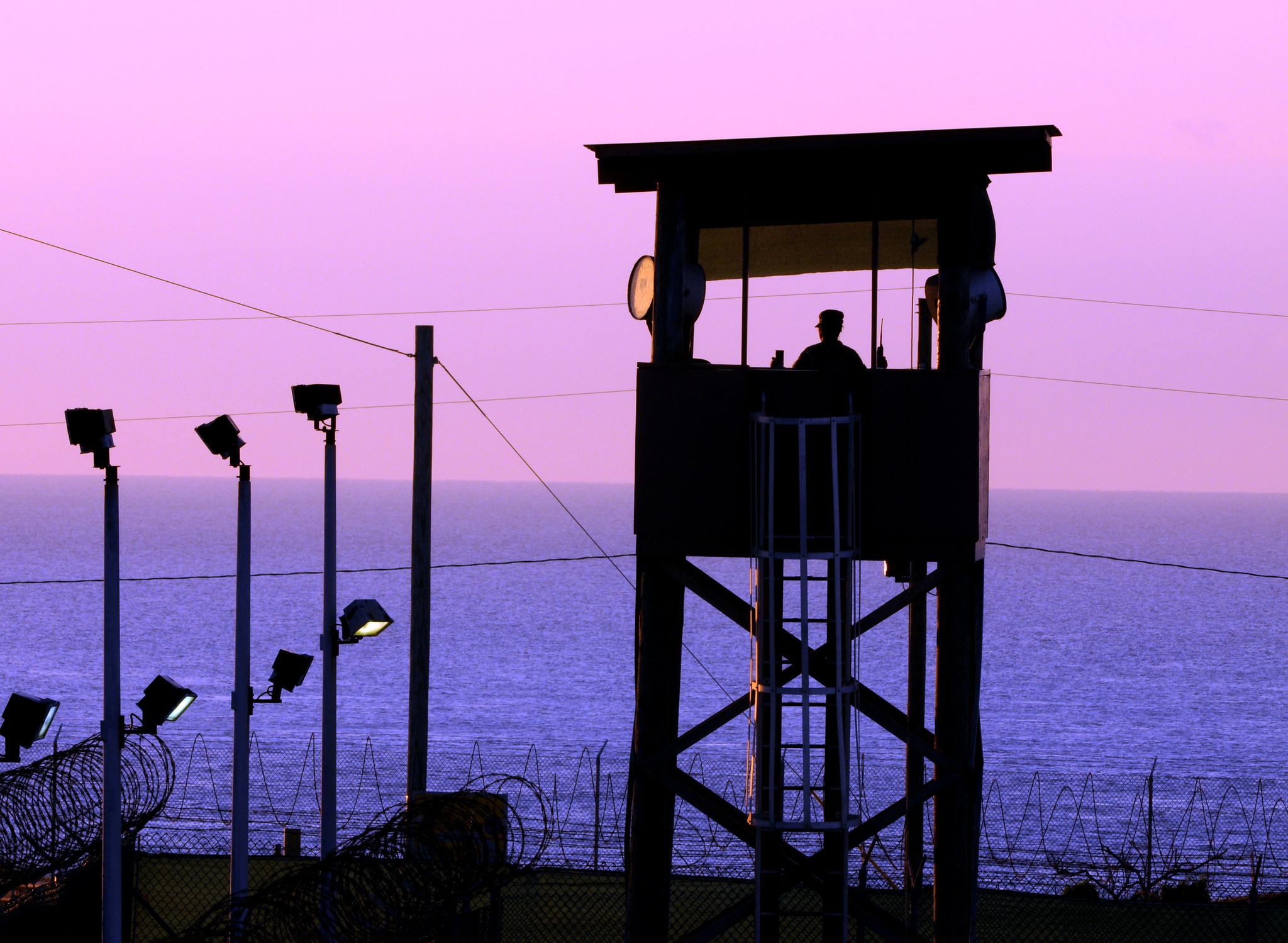A Gavel Bang, and Some Preliminary Matters
Judge Pohl bids good morning to our Guantanamo courtroom audience (and thus, indirectly, to those of us in the CCTV facility cheap seats). But wait: he’s not yet attired in his customary, authority-emanating robes. A few minutes later, he returns in costume, and calls the proceedings to order.
Preliminary matters first: Mr.
Published by The Lawfare Institute
in Cooperation With

Judge Pohl bids good morning to our Guantanamo courtroom audience (and thus, indirectly, to those of us in the CCTV facility cheap seats). But wait: he’s not yet attired in his customary, authority-emanating robes. A few minutes later, he returns in costume, and calls the proceedings to order.
Preliminary matters first: Mr. Al-Nashiri is not here today - but the choice not to attend was his, the judge says. This implicates a prosecution request regarding the accused’s continued absence, which the government and court agree to revisit later. The parties agree that the accused's absence is a voluntary one.
Judge Pohl then summarizes yesterday’s not-visible-to-the-press-and-public proceedings: it turns out the lawyers and the court engaged only in a Rule 505(h) session---that is, a discussion as to how classified information would be handled during the hearing on the defense’s two classified motions to compel discovery, and how courtroom closure could be minimized throughout argument on the motions. After that procedural chat, it was determined that closure would not be required. But the hearing on the defense’s motions did not go forward---we'll get to that at some future time, though presumably not today.
The judge’s read-out raises a small but nevertheless important detail about what took place yesterday, and what did not. The public did not miss a jam-packed day’s worth of closed courtroom activity about the accused’s “participation” in the rendition, detention and interrogation program---just an administrative discussion of how secrets would be kept secret, or whether closure would be necessary, in litigation yet to come.
The court also notes a new filing by the Convening Authority regarding the defense’s request for Elizabeth Loftus as a consultant---which the commission heard argument about the day before yesterday. Judge Pohl hasn’t read the Convening Authority's statement, but offers both parties time to respond to the filing. Defense attorney Kammen, for his part, doesn’t see how the Convening Authority can become a party to the case. Even the prosecution agrees that the judge can resolve the defense’s request without further input from the Convening Authority. In Kammen's view, the Convening Authority just can’t step into the shoes of the judge, or control the litigation. Prosecutor Anthony Mattivi doesn’t quite see it that way, though he doesn’t push back too hard against Kammen. Eventually, Mattivi quietly seems to agree that the commission could proceed to resolving the expert issue now.
A few more housekeeping details---the status of the defense’s letters rogatory and the prosecution’s objections thereto, for example---and the hearing turns to the substance.
Wells C. Bennett was Managing Editor of Lawfare and a Fellow in National Security Law at the Brookings Institution. Before coming to Brookings, he was an Associate at Arnold & Porter LLP.


-final.png?sfvrsn=b70826ae_3)

